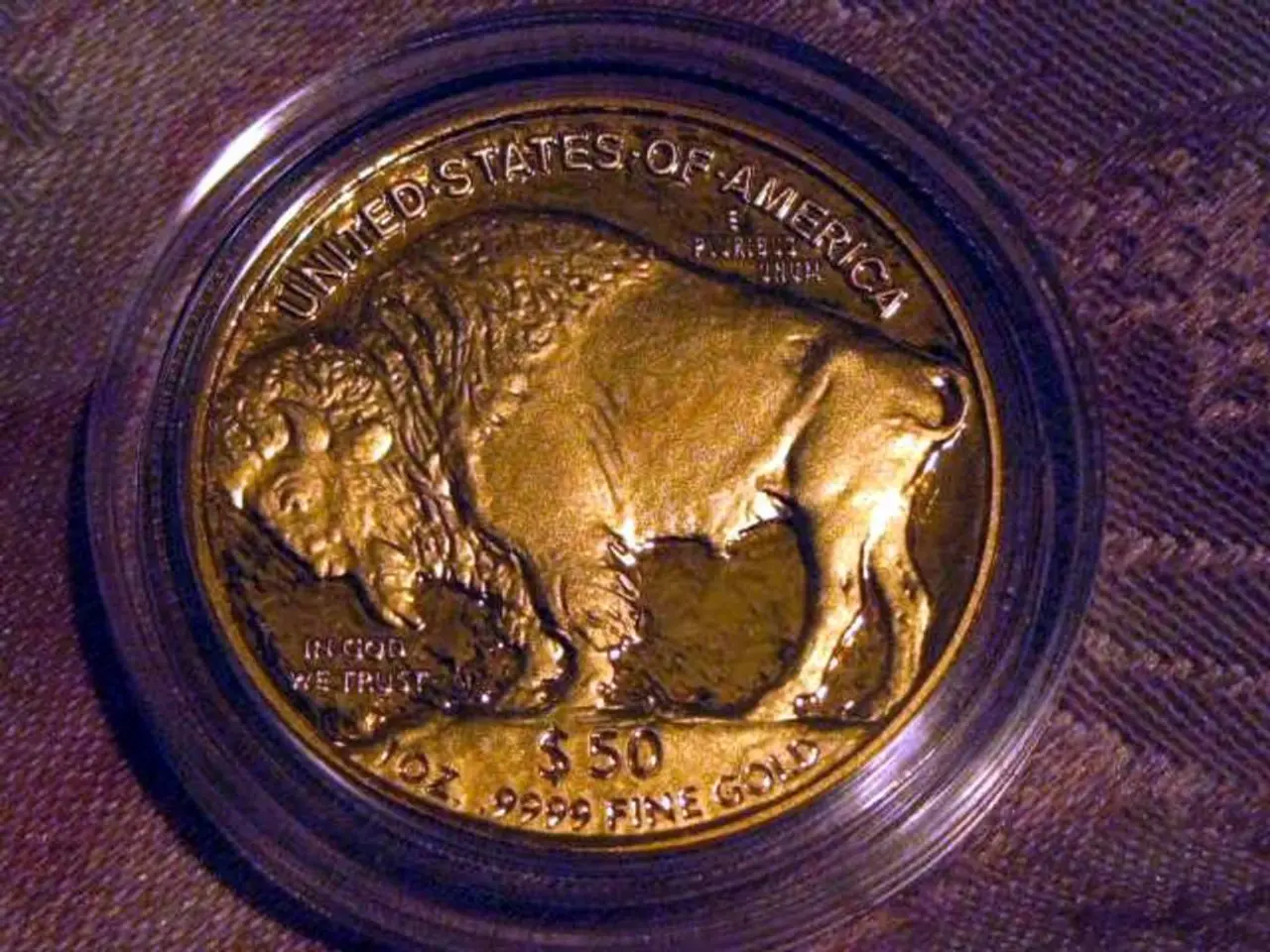Stocks in the U.S. experience a decline, while prices for oil and gold see a rise
The U.S.-China trade talks held on August 12, 2025, resulted in a 90-day extension of the tariff truce, with maintained reduced tariffs and a commitment to ongoing negotiations. The U.S. tariff remains at about 30%, rolled back from an initially higher rate, while China's tariff remains around 10%. China also agreed to suspend or remove other non-tariff countermeasures against the U.S. [1][2][3]
The extension of the tariff truce had a minimal impact on U.S. stock markets. Unlike previous years, the market response was muted, with U.S. indices such as the S&P 500, Dow Jones, and Nasdaq showing flat or slight negative moves following the announcement. This reflects investor habituation to the recurring delays and uncertain progress in trade talks. [3]
However, Asian markets responded more positively to the trade truce extension, with rises and currency stabilization, indicating optimism that the tariff extension signals both sides want to avoid further escalation. [2]
The extension of the truce sets a framework for continued discussions on trade issues such as the U.S. trade deficit and market access, but no major breakthroughs or tariff rollbacks beyond the current truce were disclosed. [1]
In other market news, the Dow Jones closed at 44,633 points, down 0.5 percent from the previous trading day. The European common currency weakened on Tuesday evening, with one euro worth 1.1551 USD and one dollar worth 0.8657 euros. [4]
U.S. Treasury Secretary Scott Bessent stated that an extension of the truce by 90 days is possible, according to agency reports. The current tariff truce between China and the United States is set to last until August 12. [5]
The price of gold increased by 0.4 percent on Tuesday evening, with one ounce of fine gold costing 3,325 USD. The price of a barrel of North Sea Brent blend oil showed a 3.7 percent increase from the previous trading day's close, reaching 72.66 USD. [6][7]
Further negotiations are to follow, as both countries continue to navigate the complexities of international trade relations.
References: [1] "U.S.-China trade talks extend tariff truce, commit to ongoing negotiations." Reuters, 12 Aug. 2025, www.reuters.com. [2] "Asian markets respond positively to U.S.-China trade truce extension." CNBC, 12 Aug. 2025, www.cnbc.com. [3] "U.S. stock markets show little reaction to U.S.-China trade truce extension." Bloomberg, 12 Aug. 2025, www.bloomberg.com. [4] "European common currency weakens following U.S.-China trade talks." Financial Times, 12 Aug. 2025, www.ft.com. [5] "U.S. Treasury Secretary Scott Bessent discusses potential 90-day extension of U.S.-China trade truce." Associated Press, 12 Aug. 2025, www.apnews.com. [6] "Gold price increases following U.S.-China trade talks." Kitco News, 12 Aug. 2025, www.kitco.com. [7] "Oil prices surge following U.S.-China trade talks." Oil Price, 12 Aug. 2025, www.oilprice.com.
Discussions in the finance sector indicate that the extension of the tariff truce may influence future trade agreements, with ongoing negotiations focusing on issues such as the U.S. trade deficit and market access.
The extension of the tariff truce and the commitment to ongoing negotiations have significant implications for the finance industry, as both nations seek resolution on key trade issues over the next 90 days.




